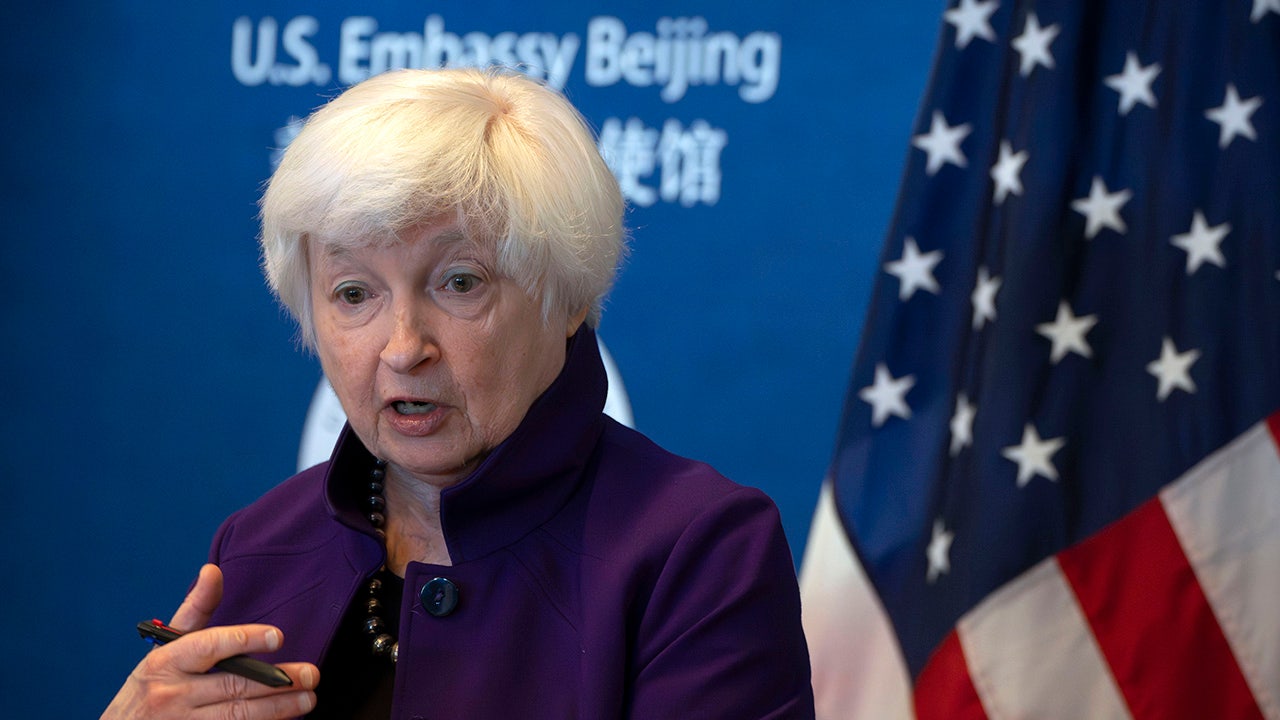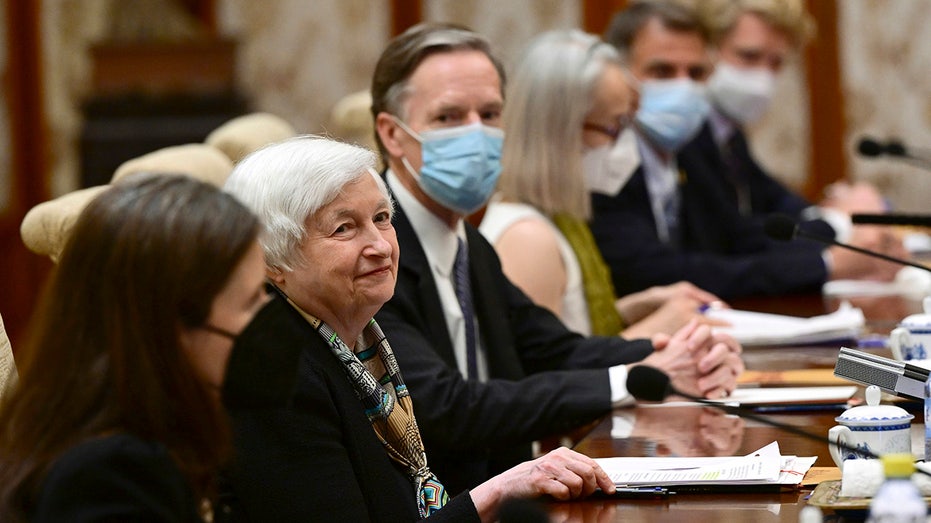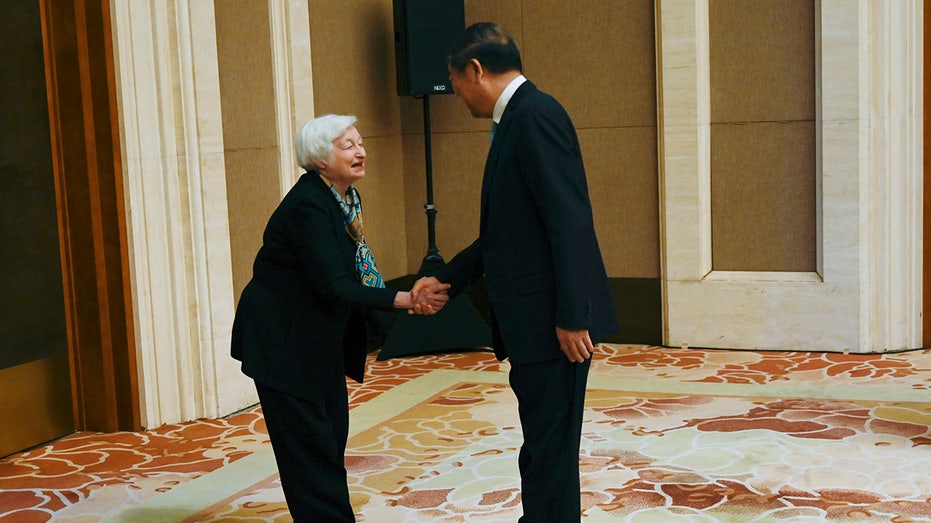Finance
Yellen vows US will protect its own ‘national security’ after China’s espionage law threatens American firms

U.S. Treasury Secretary Janet Yellen – on the heels of her diplomatic visit to Beijing – vowed that the United States would protect its own “national security” interests as China imposes an espionage law threatening American firms, as well as export controls on minerals essential to the tech industry.
Some experts have warned that a new counterespionage law that took effect in China on July 1 expands the CCP government’s investigatory powers, meaning more American businesspeople are at an even greater risk of having their offices in China raided, their phones searched, or could face exit bans preventing them from leaving the country under the legislation’s broadened provisions.
Before departing Beijing Sunday, Yellen spoke with CBS host Margaret Brennan, who noted how U.S. Ambassador to China Nick Burns previously expressed how American firms Capvision, Bain & Co., Mintz Group and several others, had been experiencing intimidation at the hands of Chinese authorities.
Yellen said the intimidation issue under the counterespionage law was one of the concerns she expressed during her around 10 hours of meeting with Chinese officials such as China’s No. 2 leader, Premier Li Qiang, Yellen’s Chinese counterpart, Vice Premier He Lifeng, and others.
JANET YELLEN AWKWARDLY BOWS TO CCP OFFICIAL DURING BEIJING TRIP: ‘OPTICS THE CHINESE LOVE’
“Well, that certainly is one of the concerns that I expressed. I had the chance to meet with American businesses and to hear about their concerns… and certainly in my meetings, that is a concern that I raised,” Yellen told Brennan during the interview recorded for CBS’s “Face the Nation.”
“But I also heard from American firms here that they see enormous opportunities, and it’s important to them that we maintain healthy economic relations with China so that American businesses and American workers can benefit from the opportunities here and vice versa,” Yellen added.
Brennan also pressed the secretary on President Biden’s long anticipated executive order that could impose restrictions on U.S. exports of computer chips related to artificial technology and cloud computing.
Just days before Yellen’s visit, Beijing announced unspecified controls on exports of gallium and germanium, niche metals used in a range of high-tech industries, including in the production of semiconductors and solar panels.

“An objective of my trip was to explain that national security is something that we can’t compromise about, and we will protect, and we will do so even if it harms our own narrow economic interests,” Yellen said. “But that when we take such actions, which do have an effect on the Chinese economy, that we will make sure that they are transparent, narrowly targeted, and well explained. And this is a point that I tried to make, in my conversations with Chinese counterparts.”
YELLEN SAYS ‘SIGNIFICANT DISAGREEMENTS’ REMAIN IN US-CHINA RELATIONSHIP, BUT SEES ‘PROGRESS’
“I would point out that the Chinese also protect their own national security through export controls and other similar devices, including controls on outbound investment,” she continued. “I explained that President Biden is examining potential controls on outbound investment in certain very narrow high technology areas, and that if we go forward with these, that they will be indeed very narrowly targeted, and should not be something that will have a significant impact on the investment climate between our two countries.”

Admitting Chinese export controls on critical materials for computer chips could “potentially” be seen as retaliatory action, Yellen said she stressed during her meetings that “no final decision has been made” by the Biden administration regarding an executive order applying to American investment in China.
“I certainly expressed concern about this action and contrasted it with the actions that we’ve taken. Our own actions are narrowly targeted to address national security concerns, and it’s not clear that the actions that the Chinese took are similarly narrowly targeted at their national security concerns,” Yellen said.
“My purpose is to make sure that we don’t engage in a series of unintended escalatory actions that will be harmful to our overall economic relationship with one another,” she added.
Read the full article here

-
Uncategorized17 hours ago
Kəşf Etmək Binance Coin Kazino Saytları Dünyasını
-
Uncategorized19 hours ago
The Increase of Dogecoin Casino Sites: An Extensive Introduction
-
Uncategorized14 hours ago
The Surge of Crypto Slots: A New Period in Online Pc Gaming
-
Uncategorized16 hours ago
High Roller Online Casinos: Inside the Globe of Elite Betting









